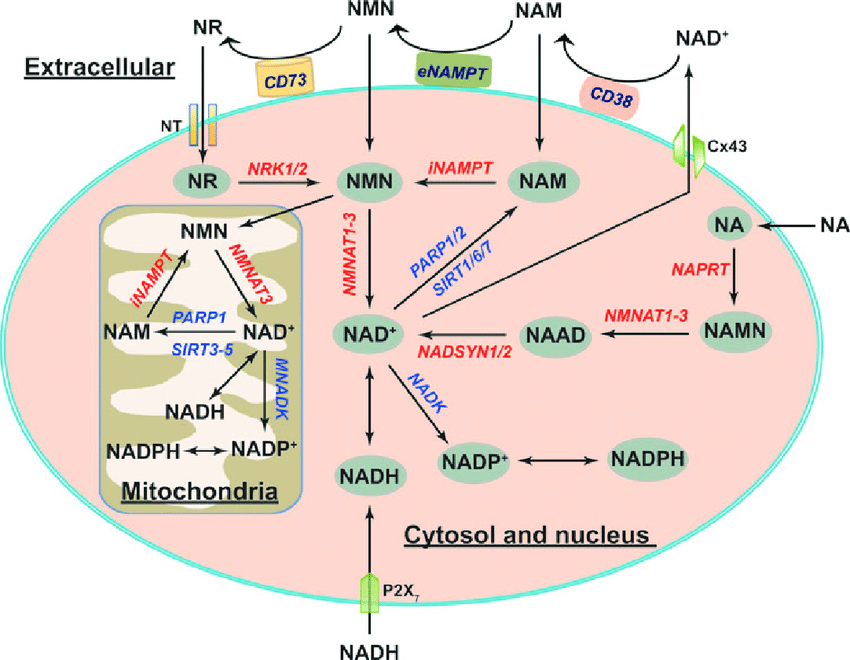
In the intricate world of cellular biology, a tiny molecule wields immense power—Nicotinamide Adenine Dinucleotide (NAD+). This unassuming coenzyme plays a pivotal role in the fundamental processes of life, from energy production to DNA repair. In this article, we will embark on a journey through the fascinating realm of NAD+, unraveling its significance, functions, and how it impacts our health.
The Molecular Marvel: NAD+ Explained
A Coenzyme Extraordinaire
NAD+ is a coenzyme in every living cell, from the simplest microorganisms to the most complex multicellular organisms, including humans. Its presence is crucial because it is an indispensable cofactor for many enzymatic reactions within the cell.
NAD+ Structure
NAD+ consists of two nucleotides, adenine and nicotinamide, linked by two phosphate groups. This seemingly modest structure harbors the ability to participate in electron transfer reactions, making it an essential player in energy metabolism.
NAD+ and Cellular Energy
The ATP Connection
At the heart of NAD+’s importance lies its role in producing adenosine triphosphate (ATP), often called the “energy currency” of cells. When we consume nutrients like carbohydrates, fats, and proteins, NAD+ acts as a carrier, shuttling electrons from these molecules to the electron transport chain, a crucial step in ATP synthesis.
The Krebs Cycle
NAD+ also plays a pivotal role in the citric acid cycle, or Krebs cycle, a central pathway in cellular respiration. Here, it helps in the oxidation of fuel molecules, leading to the release of energy that ultimately contributes to the production of ATP.
NAD+ and DNA Repair
Guardians of Genetic Information
Beyond its role in energy production, NAD+ is intimately involved in DNA repair mechanisms. Cells are constantly exposed to environmental and internal factors that can damage DNA. NAD+-dependent enzymes, such as PARPs (poly(ADP-ribose) polymerases), play a crucial role in detecting and repairing DNA damage, ensuring the integrity of genetic information.
NAD+ in Health and Aging
Age-Related Decline
As we age, NAD+ levels in our bodies naturally decline. This decline is associated with various age-related health issues, including reduced energy levels and impaired DNA repair mechanisms.
NAD+ Supplements
In recent years, NAD+ supplements have gained popularity as a potential strategy to counteract this age-related decline. These supplements aim to increase NAD+ levels, theoretically restoring youthful cellular functions.
Conclusion
Nicotinamide Adenine Dinucleotide (NAD+) emerges as a central figure in the intricate dance of cellular life. Its multifaceted roles in energy production and DNA repair underscore its significance in maintaining cellular health. As we unravel the mysteries of NAD+, we may discover new ways to enhance our vitality and well-being, potentially unlocking the secrets of a longer, healthier life.
